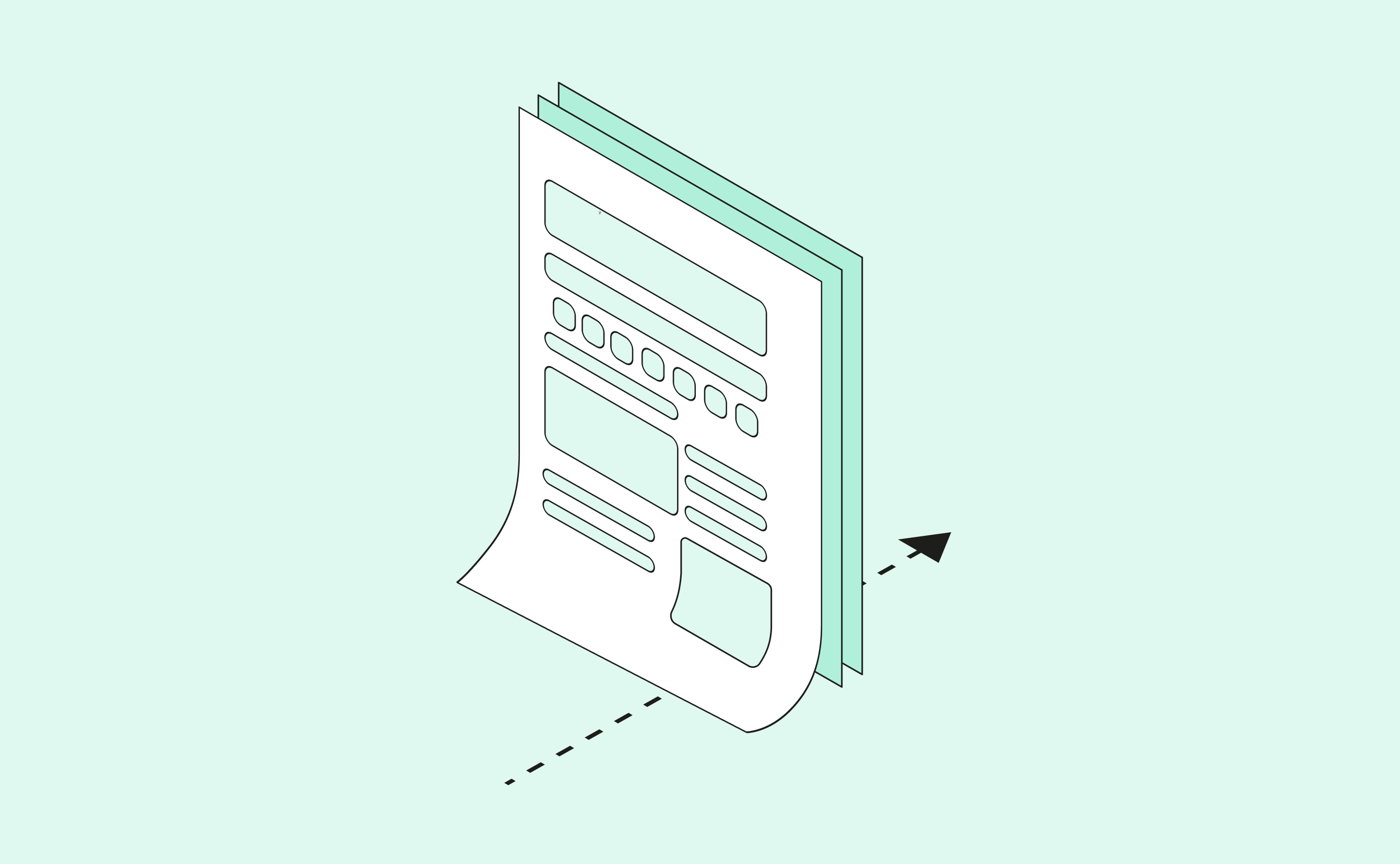Embarking on the journey of becoming an autónomo in Spain? Becoming an autónomo (self-employed worker) in Spain involves several important steps.
A guide to freelancing in Spain, for locals and expats

💡
An autónomo is a self-employed worker who provides services independently. Instead of working for a company, autónomos work directly for their clients and earn based on the services they provide.
This guide outlines the process for both Spanish citizens and foreigners who wish to work independently in the country. From tackling the infamous NIE number (it's not as scary as it sounds) to obtaining necessary documentation - such as work permits for non-EU citizens - we'll walk you through each step.
Understanding and fulfilling your tax obligations is a crucial part of being self-employed in Spain. This includes making regular social security contributions and filing periodic tax declarations. While the process may seem complex at first, following these steps carefully will help ensure compliance with Spanish regulations and allow you to operate your business legally.
Ready? Pour yourself a café con leche and let's get started.
Steps to becoming an autónomo
1. Foreigners: obtain a work permit and Foreigner Identity Number (NIE)
This first step for non-EU citizens is explored in detail below. For Spanish people and EU citizens, you’re free to get started more quickly.
2. Request Your digital certificate or Cl@ve
Most procedures can be done online using a digital certificate or the cl@ve system. These digital signatures allow you to interact with the tax agency and social security office.
3. Register with social security
Next, register with social security to start making contributions. This step includes:
- Form TA 0521: register for the RETA (Special Regime for Self-Employed Workers).
- Bank connections: set up a direct debit for automatic contributions.
- Initial flat rate: benefit from a reduced rate of €60 per month for the first year if you’re registering your freelance activity for the first time.
- Insurance company: select an insurance provider for accident coverage and other liability protections.
4. Visit the tax agency
Within 60 days of registering with Social Security, you must register with the Tax Agency:
- Model 037: fill out this simplified form to register your professional activity.
- PAE Points: seek help from Punto de Atención al Emprendedor for assistance.
5. Register for Economic Activities Tax (IAE)
Finally, register for the Impuesto sobre Actividades Económicas (Economic Activities Tax):
- Fill out a 036 form with the tax agency, where you’ll get an individualized tax ID number.
- Select Epigraph: choose the category that corresponds to your professional activity.
- Multiple IAE: you can register in multiple categories if necessary.
Declarations to keep in mind
Once registered, you can begin your professional activities. Remember to readily prepare for:
- Quarterly VAT declarations: keep track of all invoices for accurate VAT declarations.
- Annual IRPF declaration: complete your income tax declaration annually.
Staying compliant with tax obligations is crucial for avoiding penalties and ensuring smooth renewal of your residence and work permit.
Non-EU citizens hoping to freelance in Spain
Generally, any non-EU citizen who wants to become self-employed in Spain needs two mandatory permits: a residence permit and a work permit. However, specific requirements vary depending on your situation.
Temporary residence permits
One common scenario is having a temporary residence permit. You can only register as self-employed if your residence document states: "authorized to work" / "authorized to work autonomously." If it only authorizes you to work for other people, you can’t register as self-employed.
If your temporary residence permit doesn’t include these conditions, you’ll need to visit your immigration office and ask to modify your permit type.
Long-term residence permits
For long-term permits, it must explicitly authorize both residence and self-employment.
Autónomo work permit
If you hold a residence and work permit that only allows employment by others, you’ll need to request a self-employment work permit from the Spanish Consulate or Immigration Office by submitting an EX07 form.
Obtaining the self-employment work permit in Spain
To obtain self-employment authorization, you must meet personal and professional requirements and have the necessary documentation in order.
To work as an autónomo, you need a work permit and a NIE. This involves:
- Legal Status: You mustn’t have a criminal record in Spain or any country where you’ve resided in the past five years. Also, you can’t be in an irregular situation in Spain, or have been deemed “inadmissible” in countries with agreements with Spain.
- Financial investment: Your professional investments for the project must be deemed sufficient, and you have to prove enough resources to sustain your everyday life and accommodation.
- Qualifications: You’re expected to have the necessary academic training and professional experience (and registration if required).
- Business Plan: It’s manatory to present a viable business plan showing your project’s potential to contribute to the Spanish economy.
- Application Form EX-07: Complete and submit this form, and pay a fee for processing the temporary residence authorization.
Once approved, you’ll receive a visa to enter Spain. Upon arrival, register your fingerprints and obtain your TIE (Tarjeta de identidad de extranjero / Foreigner Identification Card) which includes your NIE.
Other situations for foreigners registering as self-employed
Here are a few special scenarios to consider if you want to start a business in Spain as a foreigner:
International Protection (Red Card)
If you’ve been awarded a red card for international protection purposes, you can’t be expelled from the country and can apply for a residency card. However, you won’t be able to work until the card is renewed after six months, which authorizes employment.
Arraigo situation
If you’re classified as someone in an Arraigo Familiar (rooted) situation, your documents will specify the conditions under which you’re granted temporary residence and work authorization.
Family member of an EU national
If you qualified for your residence permit as a family member of an EU citizen, you’re authorized to work independently. The confirmation of your immigration status can be used for self-employment registration until your final residence card is issued.
EU nationals (NIE Verde)
If you’re from an EU country, you can work and reside in Spain with your passport and EU Registration Certificate (NIE Verde). We’d recommend obtaining an NIE number for Social Security registration (or opening a bank account).
Key takeaways
Despite the administrative hurdles and costs, being self-employed in Spain offers the flexibility and independence to manage your own professional activities, with the potential for improved pension benefits due to recent reforms.
However, there're a few things to keep in mind:
- Understand the costs: becoming self-employed in Spain involves a mandatory monthly quota, along with additional expenses such as VAT, income tax, and other operational costs. On top of this, other common expenses include office space, liability insurance, bank commissions, and online platforms/connectivity costs. These can be partially tax-deductible if properly documented.
- Initial setup: registering as an "autónomo" involves multiple steps, including obtaining a work permit and NIE, requesting a digital certificate, registering with social security, and the tax agency, and finally registering for Economic Activities Tax (IAE).
- Tax obligations: self-employed individuals must manage quarterly VAT declarations and annual income tax declarations. Keeping accurate records of all invoices is crucial to ensure compliance and avoid penalties.
- Evolving contributions: recent changes have linked social security contributions to actual income, potentially increasing the financial burden for higher earners (see table above), aiming to provide better pension benefits in the long run.
- Foreigners face extra steps: non-EU citizens need both a residence permit and a self-employment work permit. The process includes several personal and professional requirements, and the necessary documentation must be in order.
Ready to jump start your autónomo career? Get in touch to launch your freelance activity (and inaugural business account) with Qonto.






